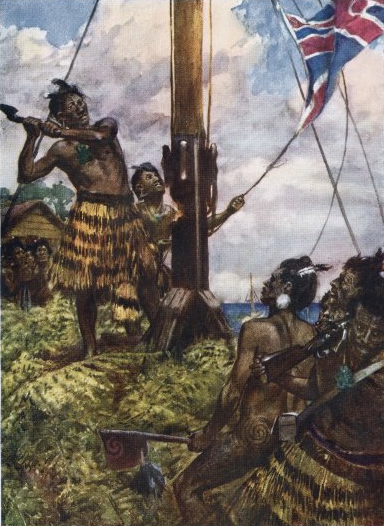
The Flagstaff War was fought between 11 March 1845 and 11 January 1846 in New Zealand between Maori inhabitants and British settlers, in an attempt to drive settlers out of the British colonial settlement of Kororareka because of breaches of the 1840 Treaty of Waitangi and because of increasing colonial attempts at control over Maori affairs. The Treaty established the legal base for British presence in New Zealand and is still seen today as the document that established modern-day New Zealand.
The British flagstaff on Maiki Hill was cut down four times in the course of the war and a total of around 170 men were killed. After numerous battles, by the war’s end it was regarded to be a British victory, but this is still subject to debate today. In reality, the war ended with a stalemate as both sides wished to end the fighting, and both sides’ situations remained more or less the same before the outbreak of hostilities.
The flagstaff was never re-erected, proving to be of great significance to the British as many Englishmen believed that they could govern merely by name alone. They soon realised that the natives would rule New Zealand and would not give up without a strong fight.
